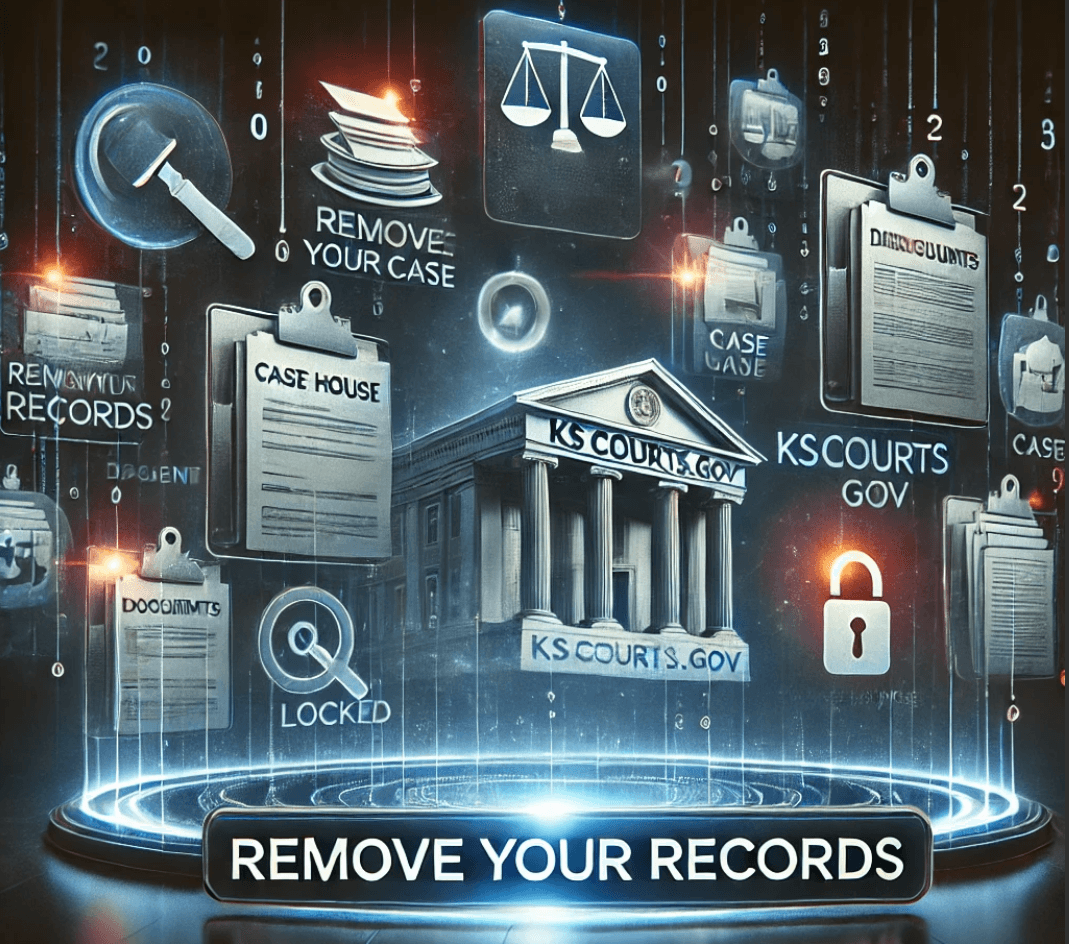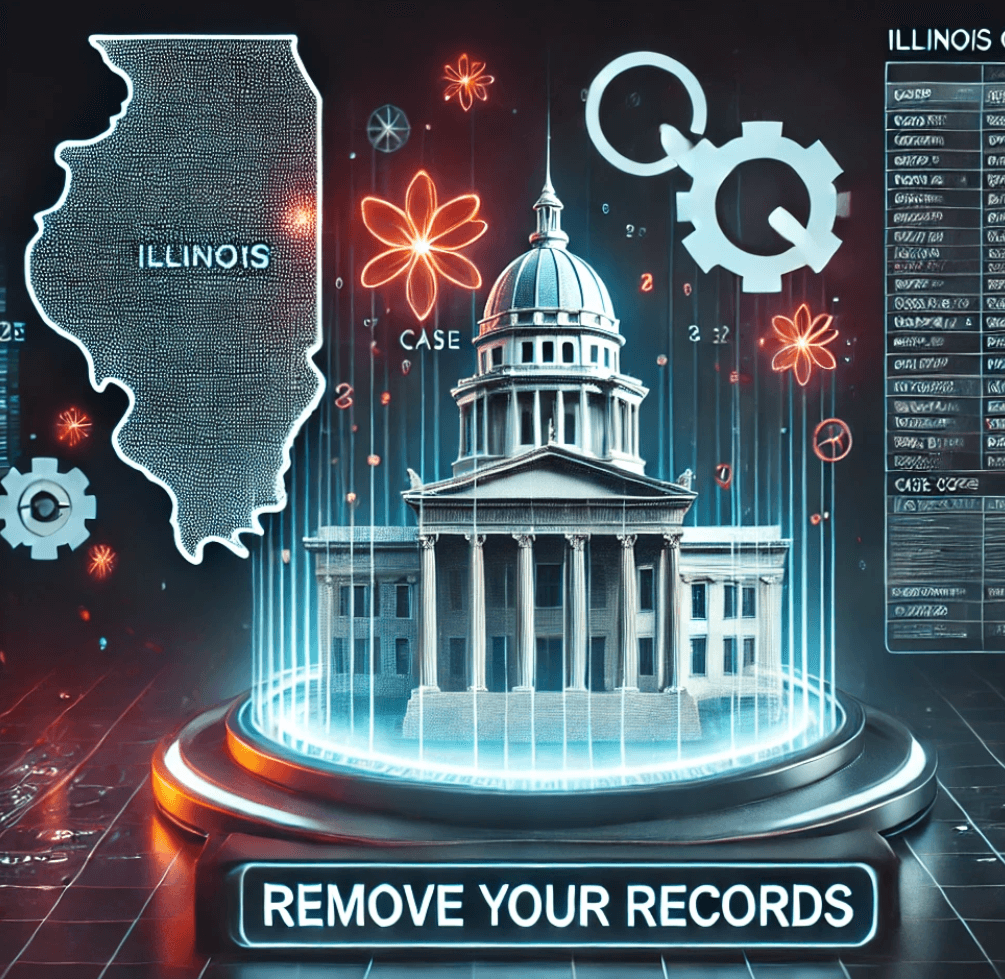Table of Contents
What Is KSCourts.gov?
Why You Should Protect Your Privacy
How to Remove Records from KSCourts.gov
What Information Is Visible on KSCourts.gov?
Where Else Are Your Court Records Visible?
Steps to Reduce Your Digital Footprint
Final Thoughts on Protecting Your Privacy
What Is KSCourts.gov?
KSCourts.gov is the Kansas Judicial Branch's public access portal for court case information. The site allows users to search for and view records of civil, criminal, traffic, and other legal proceedings that have been filed in the state of Kansas. This system is part of the judiciary’s goal to maintain transparency and provide easy access to public records.
Just like Missouri’s Case.net, which offers similar services for Missouri court records, KSCourts.gov is a valuable tool for both legal professionals and the general public. However, this same accessibility creates potential risks, as private individuals may unknowingly have their personal data exposed for anyone to find.
Why You Should Protect Your Privacy
Court records available on KSCourts.gov can include sensitive personal information, such as your full name, address, case history, and even details about criminal offenses or civil disputes. This information is public by law, which means that anyone with internet access can look it up.
Here’s why this matters:
Identity Theft: Identity thieves can use your court records to gather personal information, such as your name and address, to commit fraud.
Harassment or Stalking: People with malicious intent, such as stalkers or abusers, can use your information to locate you or learn about your legal history.
Unwanted Contact from Marketers: Data brokers scrape publicly available information like court records and sell it to advertisers, leading to spam, unsolicited phone calls, and more.
While the Kansas Judiciary must provide this information by law, there are steps you can take to limit how much of it is publicly accessible.
How to Remove Records from KSCourts.gov
Unfortunately, there is no simple opt-out mechanism to remove records from KSCourts.gov, as it serves as an official repository for public court records. However, there are certain circumstances where you might be able to reduce the visibility of your records:
1. Expungement
If you qualify for expungement, your court records may be sealed or erased from public access. Expungement is typically available for certain misdemeanors, non-violent felonies, and other qualifying cases, depending on Kansas law. Once a case is expunged, it will no longer appear in KSCourts.gov public search results.
You can learn more about expungement in Kansas and eligibility by visiting the official Kansas Judicial Branch website and consulting with a lawyer.
2. Satisfaction of Judgment
If you were involved in a civil case—for example, a dispute over unpaid debts or rent—and the case has been resolved, you can file for a satisfaction of judgment. This process acknowledges that you have met the terms of the court's decision (such as paying a fine), which will appear alongside the record on KSCourts.gov.
What Information Is Visible on KSCourts.gov?
When someone searches for your record on KSCourts.gov, they can see various details depending on the case type. Some of the information typically visible includes:
Full Name: Your legal name and any aliases.
Case Type: Whether it’s a criminal, civil, or family law case.
Case Number: The unique identifier for your case.
Court Judgments: The outcome of the case, including sentences, fines, or settlements.
Case Status: Whether the case is open, closed, or pending.
In some instances, additional sensitive details, like addresses or Social Security numbers, may accidentally be included in court documents. Such issues have raised concerns about data breaches and privacy violations, making it even more important to be aware of what information is exposed.
Where Else Are Your Court Records Visible?
In addition to KSCourts.gov, your court records may also appear on third-party websites such as data brokers and people search sites. These websites aggregate public data from various sources, including court records, and create profiles of individuals to sell the data to third parties.
Some common data brokers that might display your court records include:
Spokeo
BeenVerified
FastPeopleSearch
The accuracy of this data can vary. Some data brokers may miscategorize crimes or list outdated information, which can impact your personal and professional reputation. For example, it’s not uncommon for misdemeanors to be mislabeled as felonies on these sites.
Steps to Reduce Your Digital Footprint
If you can’t remove your court records from KSCourts.gov, there are still ways to limit your exposure online:
1. Opt Out of Data Brokers
Many people search sites and data brokers allow you to opt out of their databases, although the process can be time-consuming. Check out our detailed guide on how to remove your information from FastPeopleSearch and other major data brokers to start reclaiming your privacy.
2. Monitor Your Online Presence
Continuously monitor sites like KSCourts.gov and data broker sites to ensure your information is not being republished after opting out.
3. Use a Data Removal Service
If manually opting out sounds overwhelming, consider subscribing to a service like CleanData. CleanData will automatically monitor and remove your information from multiple data brokers, reducing the amount of personal data available online.
Final Thoughts on Protecting Your Privacy
Your court records on KSCourts.gov are part of the public record, but that doesn’t mean you have to leave your entire digital footprint exposed. While there are no easy ways to remove records from KSCourts.gov, exploring expungement, filing for satisfaction of judgment, and removing your data from third-party sites are effective ways to protect your privacy.
For more information on removing your data from data brokers, check out our guide on How to Opt Out of People Search Engines.
Stay informed and proactive about your privacy—visit CleanData for more tools and resources to keep your personal information secure online.



